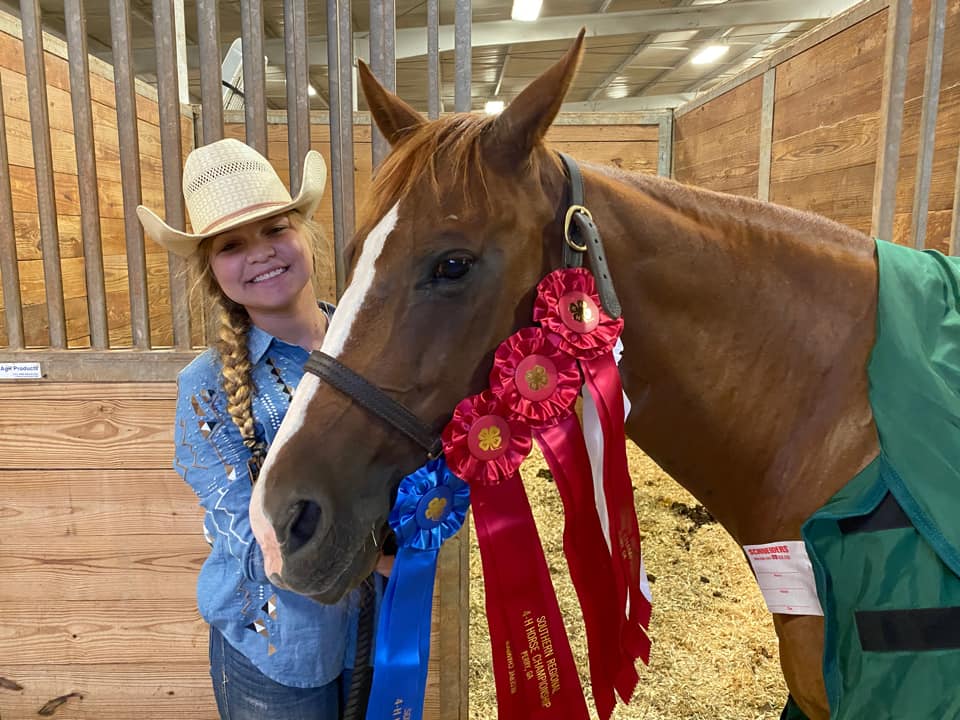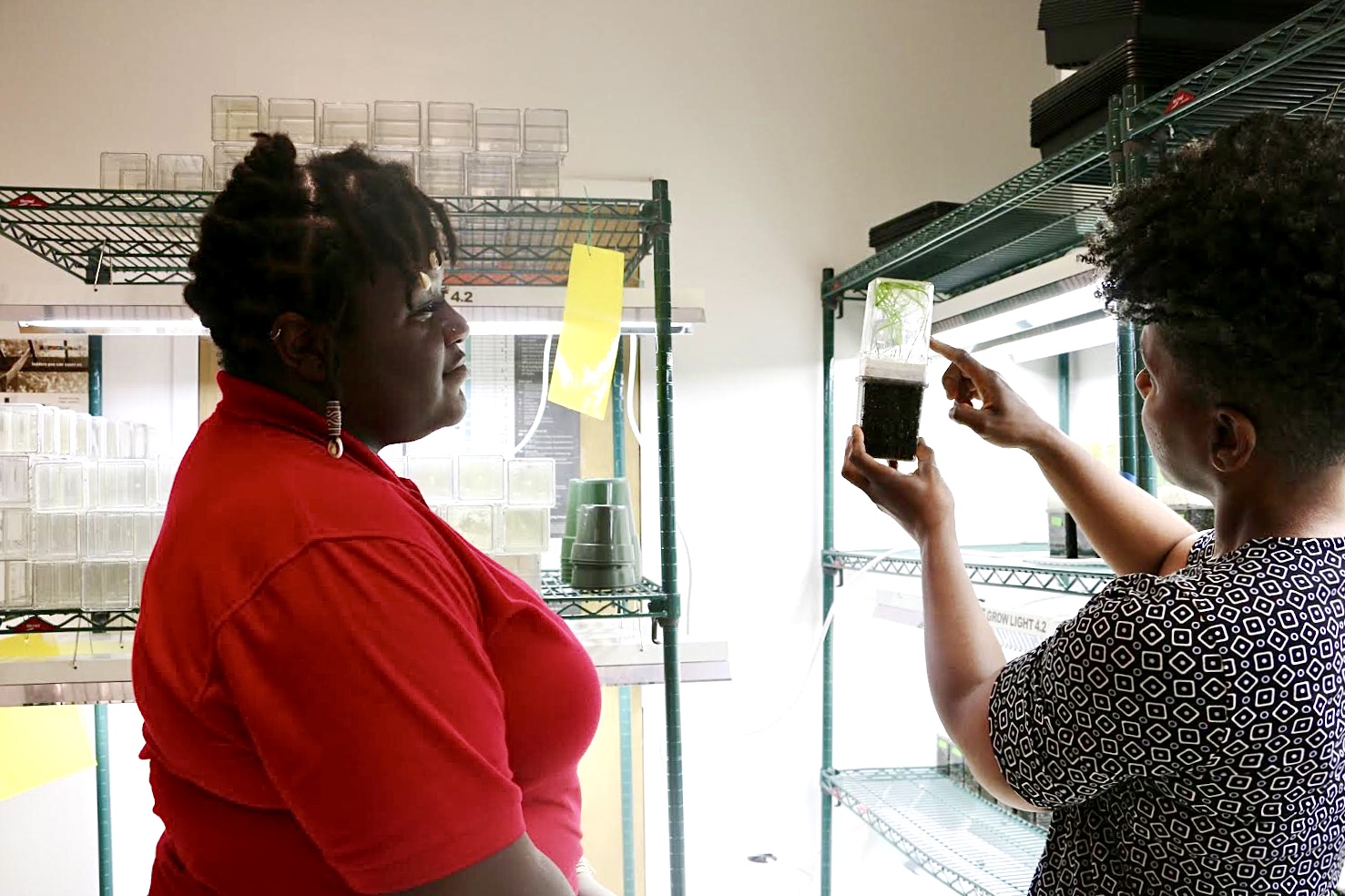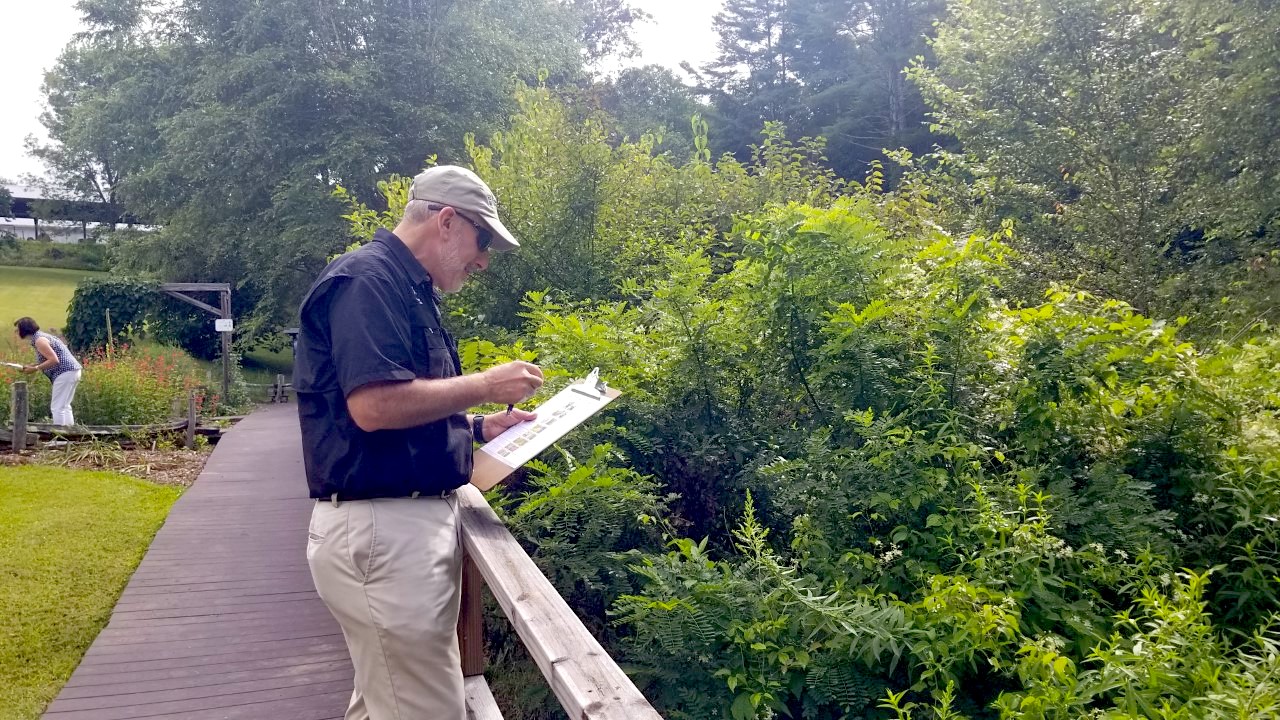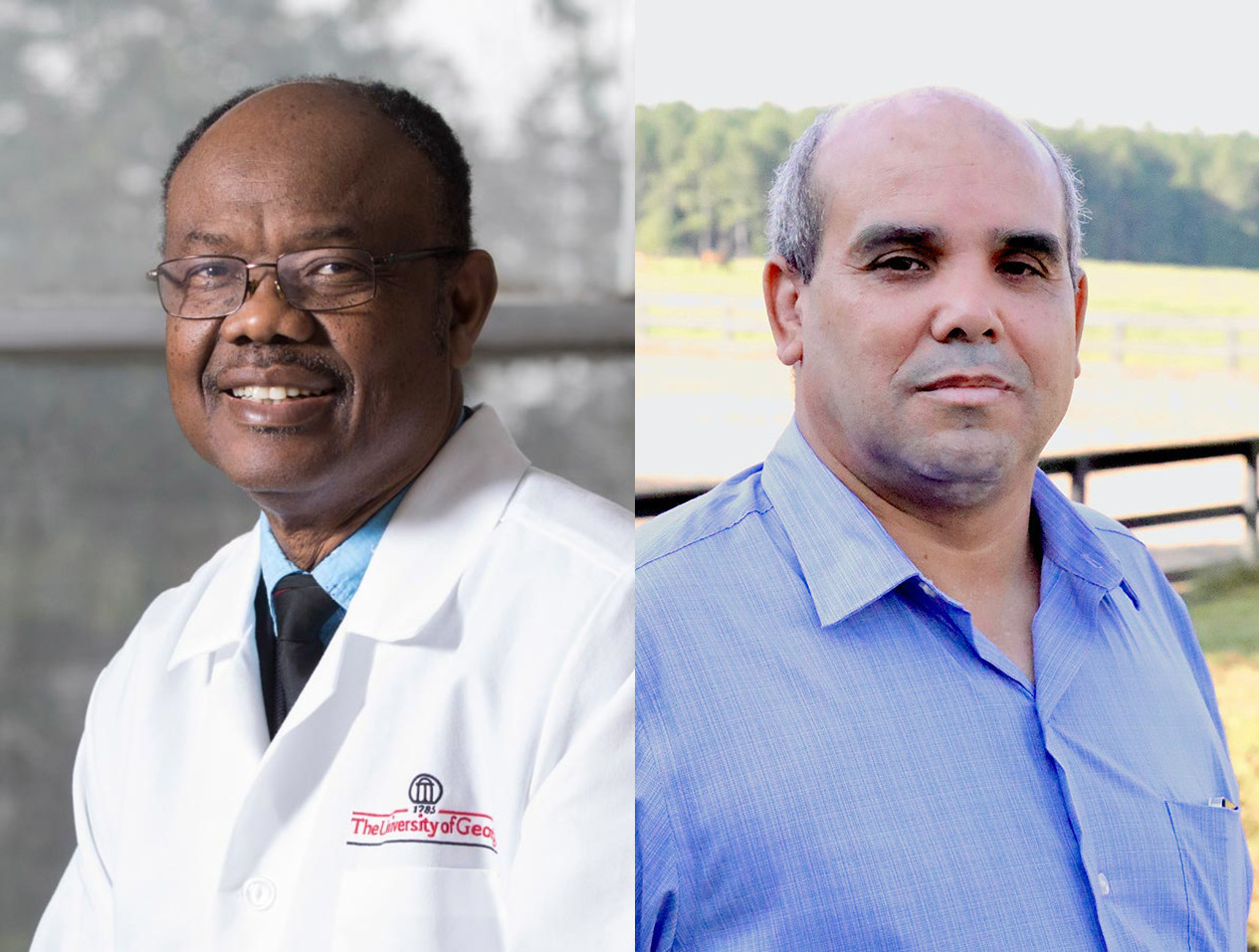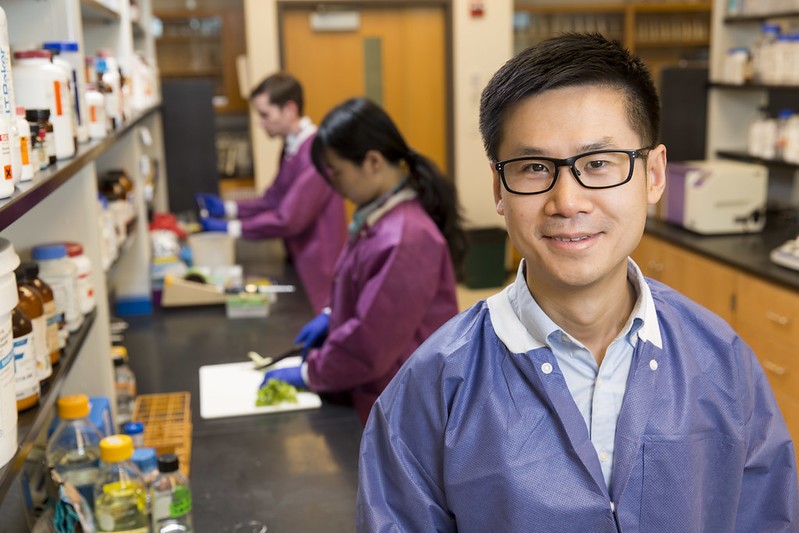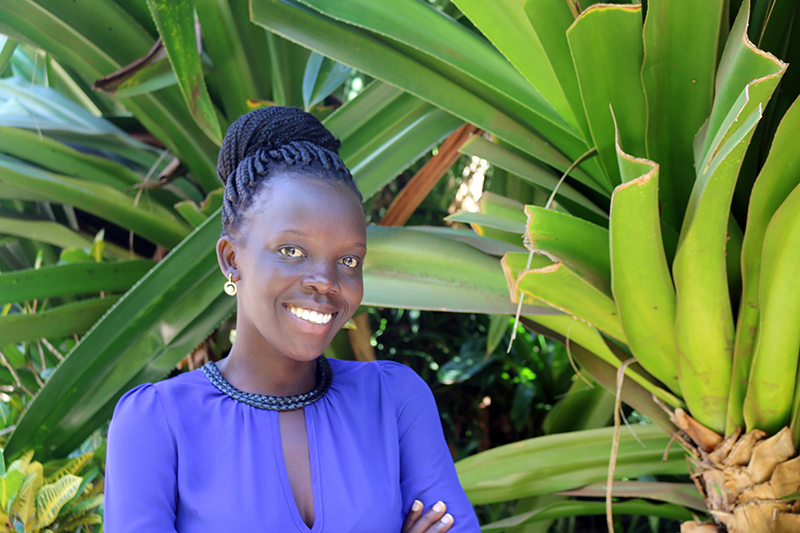 CAES News
CAES News
Fighting GRD in peanut
Scientists have discovered that some varieties of peanut have natural defenses against a devastating disease that completely stunts the growth of other varieties. Now, they are homing in on where those resistant peanuts store that defense – where in its genome the disease-fighting weapon lies – so that they can tap into that resistance and give subsistence farmers a way to grow a more bountiful crop with less risk. Esther Achola has her eye on that prize.





